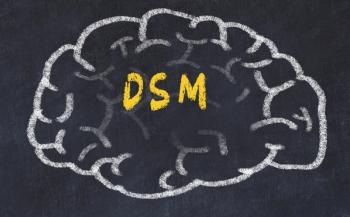
Improving Depression Symptoms: Study Meets Endpoints
A new study showed zuranolone treatment in patients with major depressive disorder demonstrates a rapid and statistically significant reduction in depressive symptoms.
Sage Therapeutics and Biogen recently announced the CORAL Study examining zuranolone treatment in patients with major depressive disorder (MDD) demonstrated a rapid and statistically significant reduction in depressive symptoms at day 3 and over the 2-week treatment period.
This significance was demonstrated at day 3, with zuranolone 50 mg initiated concurrently with an open-label standard of care antidepressant. Significance was assessed by change from baseline in the 17-item Hamilton Rating Scale for Depression (HAMD-17). Zuranolone with a standard of care antidepressant also demonstrated a statistically significant improvement in depressive symptoms compared to ADT with placebo over the 2-week treatment period. Zuranolone was well-tolerated overall.
By meeting its objectives, the CORAL Study supports the potential usefulness of zuranolone.
Priya Singhal, MD, MPH, Head of Global Safety and Regulatory Sciences and Interim Head of R&D at Biogen, said this of the results: “These positive results from the CORAL Study indicate that zuranolone co-initiated with standard of care may offer more rapid relief from depressive symptoms than current standard of care taken alone. Based on the collective results observed across the LANDSCAPE clinical development program, we believe that zuranolone has the potential to offer a new clinically meaningful treatment option for people with major depressive disorder.”
“We believe the CORAL Study is clinically meaningful and with the addition of this data, the LANDSCAPE program now demonstrates zuranolone has 3 potential real world uses for the treatment of MDD. The LANDSCAPE data support zuranolone as a monotherapy, and since many people in the previously completed studies were already on maintenance antidepressants, we believe our data also support zuranolone as additive therapy. The CORAL Study further supports the use of zuranolone to accelerate the benefit of conventional antidepressants in treating MDD with a well-tolerated safety profile,” added Barry Greene, Chief Executive Officer at Sage.
“Including the CORAL Study, zuranolone now has 6 positive clinical studies, and we remain on track to start the rolling submission for a New Drug Application in MDD early this year with completion targeted for the second half of 2022,” Greene said further.
“The CORAL Study results were particularly interesting because the data demonstrated that zuranolone worked within days to provide rapid reduction in depressive symptoms as compared to current antidepressants, which in clinical practice can take weeks or months to work,” said Sagar Parikh, MD, Professor of Depression and Clinical Neuroscience, and Psychiatry Sciences, University of Michigan. “In my experience, people with MDD deserve to feel better as soon as possible with a treatment with tolerable side effects. These data suggest that zuranolone has the potential to offer this option and to provide physicians the opportunity to think differently about treating MDD.”
Reference
1. Sage Therapeutics and Biogen announce the phase 3 CORAL Study met its primary and key secondary endpoints. BioSpace. News release. February 16, 2022.
Newsletter
Receive trusted psychiatric news, expert analysis, and clinical insights — subscribe today to support your practice and your patients.







